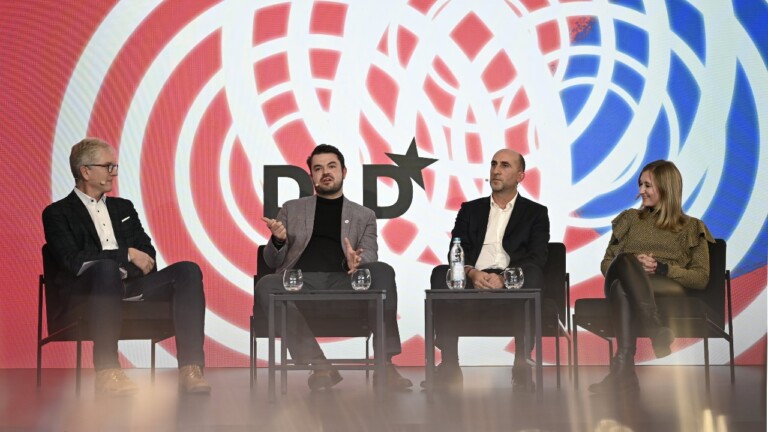Many companies talk about adopting AI, but only a fraction actually manage to scale it and realize its full value. In this DLD Future Hub discussion, moderated by Christian Kirschniak (BCG), three experts share real-world examples and practical insights: Judith Dada (Visionaries Club), Johannes Rath (Signal Iduna) and Lennard Schmidt (Langdock).
“Adoption starts with small steps”, Rath notes. His company, a German insurance group, faces the challenge that 30% of its workforce will retire over the next ten years. In response, Signal Iduna started building its first AI assistant in 2023. “It really helped our call center agents”, Rath says, and the experience encouraged the company to venture further into AI with more ambitious projects.
From a leadership perspective, Rath’s advice is clear: “You have to observe what your employees are doing with AI, you have to discuss it, you have to give them a clear mandate.”
Judith Dada celebrates the rise of “AI-first” startups that are reshaping industries. She notes that young founders, often just 16 or 17 years old, are leading this charge, empowered by AI’s accessibility. “You don’t require a lot of prior industry expertise or knowledge to really be able to make a big dent with this technology”, she says.
Adoption tends to be most successful when it comes from the top, Dada emphasizes. “AI is not something that you can outsource to your CTO or to your Chief Product Officer. If you as a leader of an organization are not using AI tools every single day, you will completely and utterly lack the intuition of understanding what is possible and what isn’t possible.”
Lennard Schmidt highlights the challenge of scaling AI in large enterprises while keeping confidential information private and complying with regulation like Europe’s GDPR. “The software we’re providing is essentially a company GPT – or a ChatGPT that caters to all the enterprise needs”, he explains.
Watch the video for more insights into successfully adopting and scaling AI in business.






